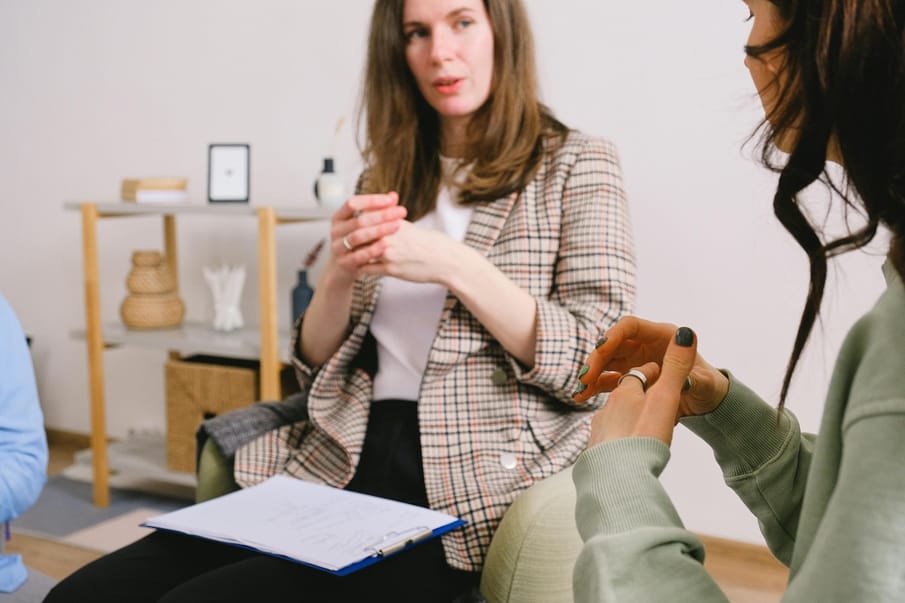Discover the empowering training enabling you to unlearn unhelpful habits and unwanted behaviours
We all have habits – big or small – that we would rather change, from not drinking enough water to engaging in revenge bedtime procrastination. But for those with diagnosable conditions, certain habits may actually be upsetting or distressing, and so breaking these might feel like something that they need to do. And while some of these behaviours may fluctuate depending on events in our lives, or change over time on their own, others can require help for us to replace them with newer, healthier alternatives.
What is habit reversal therapy?
Also known as habit reversal training (HRT), habit reversal therapy is an evidence-based treatment most commonly used to bring attention to tics and other unwanted behaviours, thereby helping the person affected gain better control. While it was first developed in the 1970s by psychologists Nathan Azrin and Richard Nunn as a treatment for nervous tics and habits associated with Tourette’s syndrome, in more recent years it has also been used to help treat obsessive-compulsive related disorders, as well as to help with unwanted behaviours outside of specific formal diagnoses.
This process is usually done by following a number of steps including:
Awareness training. Together, the therapist and individual work to find the warning signs that occur before an unwanted habit (e.g. a specific thought, behaviour, or emotion), and to recognise situations where these typically happen. This helps the person to identify triggers and develop internal and external awareness of their behaviours.
Competing response training. This involves collaborating with the therapist to implement more desirable behaviours to replace old, unwanted ones. For example, someone who bites their nails may instead be encouraged to chew gum – allowing them to engage in a similar behaviour that doesn’t have the same unwanted consequences.
Relaxation. Stress can often cause unwanted habits to occur more frequently. A therapist may introduce relaxation training and self-care strategies, such as meditation, mindfulness, breathing exercises, progressive muscle relaxation, or visualisation, to help minimise stress levels.

Generalisation training. Helping to reinforce new, positive behaviours over time, generalisation training gets individuals to practise tactics learned to help them in different situations until these new behaviours become the automatic response when stressful situations occur.
What does habit reversal therapy help with?
The benefit of this treatment is that it can be applied to help reduce physical and verbal tics, change unwanted behaviours, and build new, healthier habits. There is a wide range of conditions and habits it can help with, from Tourette’s syndrome to tic disorders, and obsessive compulsive disorders, alongside impulse control disorders such as trichotillomania (hair-pulling), nail-biting, or dermatillomania (skin-picking), and can benefit those struggling with both automatic and focused (deliberate) habits. It can also be helpful for those who stutter and fidget, along with people experiencing anxiety or depression, addiction, gambling problems, or who are trying to stop smoking.
Essentially, many people can benefit from habit reversal therapy, but it’s worth knowing that it’s particularly recommended for children with disorders such as OCD and Tourette’s syndrome, although it can help people at any age to break unwanted repetitive behaviours and habits.
Does it work?
Research has shown that HRT can be an effective form of treatment, with one study published in Functional Neurology in 2013 focused on evaluating the effectiveness of HRT to treat Tourette’s and other chronic tic disorders in particular. Reviewing the results of five relevant studies, it concluded that HRT can significantly reduce tic severity in both children and adults.
When it comes to treatment options, you also don’t have to go down one route alone. Therapists may recommend trying other forms of therapy alongside HRT, which commonly include cognitive behavioural therapy (CBT) or dialectical behaviour therapy (DBT).
As with any illness or condition, our experience and the impact of it on our day-to-day life can be unique. And so, our response to treatment types and what is most effective for us, will be just as individual, therefore it’s really important to explore different methods to find what is best suited to you.

Are there any risks with this type of therapy?
While habit reversal therapy can improve unwanted habits or behaviours, the main thing to be aware of is that it is recommended that you work with an experienced, qualified therapist to do so. While the concept may resonate and appeal to you, without assistance from an experienced professional, it can be possible to inadvertently replace one unhealthy behaviour or habit with another, such as replacing nail biting with smoking. This is why working with a qualified, experienced, trained, habit reversal therapist can help you to get the most out of this type of therapy.
What to expect from habit reversal training
Before starting sessions, you may be asked to provide information about what behaviours you are looking to change, or what condition you may be looking for support with. Some therapists may offer an initial introductory session to better understand your needs and what you hope to achieve, before beginning the official HRT sessions. Your therapist may explain more about what to expect, and if they incorporate any other kinds of therapy alongside HRT.
While there is no set time frame for habit reversal training to work, it is often delivered over a number of sessions over the course of eight to 16 weeks, though your therapist may recommend fewer or more sessions depending on your individual needs. It really is about working together to establish a treatment process that best suits you.
If this sounds like it could be an effective route for you, talking to a therapist can be a helpful first step. With time, commitment, and support, it’s possible to change unhelpful habits and behaviours for good.


Comments